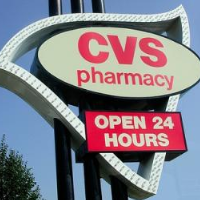Quota-Driven Pharmacies Refill Prescriptions without Patient OKs

Getting a prescription filled at your favorite pharmacy is getting easier by the day. You don’t even have to ask; the pharmacy will sign you up for an automatic refill without your permission and order your meds, even if you don’t want them to.
Los Angeles Times business columnist David Lazarus has written a series of articles in recent weeks detailing examples of New Jersey and L.A.-area pharmacists at CVS Caremark, Walgreens, Target and Rite Aid ordering medications prematurely to maximize revenues and lock in customers.
Some pharmacists admitted to being pressured by management to produce a certain number of automatic orders or suffer the consequences. Lazarus cited 16 current and former CVS pharmacists he had spoken to who, off the record, confirmed the practice. “We have to pretend that we have no idea how it happened,” one pharmacist told him. “Everyone involved knows what this really is: a way to fill more scripts and make more money for the company.”
The U.S. Department of Justice has opened an investigation that is focused primarily on allegations of Medicare fraud, and it is being conducted in cooperation with another investigation by the U.S. Department of Health and Human Services.
Lazarus quoted from CVS internal emails that referenced a 30% automatic refill signup quota and threatened “major personnel changes” if goals were not met. New Jersey CVS supervisor Ryan Barna implored employees to “go out and make this happen this week and every week going forward.”
Barna also provided pharmacists with helpful hints on how to respond if customers complain about the unauthorized refills. He recommended telling them that “we tried calling you several times this week on this past-due prescription” and that “I went ahead and filled it so it would be ready for you.”
Prematurely filled prescriptions can cause problems for customers who, for instance, might try to fill a prescription while out-of-state only to find the pharmacy back home has already exhausted the order.
Even if a patient eventually refuses to accept a prescription, the pharmacy reaps a windfall by collecting early from an insurance provider, like Medicare, and hanging on to the money before returning the unwanted medication to its stock after 14 days and reimbursing the insurance company. In the interim, the pharmacy has received what amounts to an interest-free loan.
–Ken Broder
To Learn More:
Target, Rite Aid, Walgreens Refill Drugs without OK, Patients Say (by David Lazarus, Los Angeles Times)
U.S. Investigating CVS Prescription Refills (by David Lazarus, Los Angeles Times)
Don't Need that Drug Refill? Here it is Anyway (by David Lazarus, Los Angeles Times)
Pharmacists Confirm Pressure from Management to Refill Prescriptions Automatically (by Chris Morran, The Consumerist)
- Top Stories
- Controversies
- Where is the Money Going?
- California and the Nation
- Appointments and Resignations
- Unusual News
- Latest News
- California Forbids U.S. Immigration Agents from Pretending to be Police
- California Lawmakers Urged to Strip “Self-Dealing” Tax Board of Its Duties
- Big Oil’s Grip on California
- Santa Cruz Police See Homeland Security Betrayal in Use of Gang Roundup as Cover for Immigration Raid
- Oil Companies Face Deadline to Stop Polluting California Groundwater





